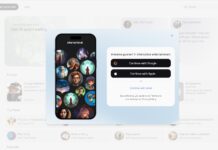AFP – It may appear that there are two kinds of people – those who are patient and those who aren’t. Yet patience is not an innate quality. An American study, published in the journal Nature Communications, claims that it’s much easier to be patient when you focus on the reward, not the wait.
A team of researchers based in the United States came to this conclusion after conducting an experiment with 353 students. The students were faced with a dilemma: wait seven days to receive USD40, or wait 30 days to receive USD60. Volunteers were asked to indicate their choice on a screen so that software could track and record their movements with the computer mouse.
The researchers gave the participants varying amounts of time to make their decision. In some cases, they had just a few seconds to choose between the two options presented to them. In others, they could take as long as they wanted.
They found that more than half the students preferred to wait 30 days to earn USD60, no matter how much time they had to think about it. Surprisingly, volunteers were more likely to be patient when they had to make their choice in a matter of seconds. Conversely, they were more likely to choose the more impulsive option – earning USD40 after seven days – when they had time to think.
Students with an impatient nature were, on the other hand, more likely to choose the reasonable option when they could think about their choice for as long as they wanted.
LEARNING TO MANAGE FRUSTRATION
For Ian Krajbich, lead author of the study, this shows how time pressure has different effects on different individuals. “If you’re somebody who focuses on the rewards first, time pressure accentuates that and makes you more patient. And if you’re a little impatient by nature and focus on delays first, time pressure magnifies that impatience,” he said in a statement.
However, Krajbich and his colleagues noticed that participants were more patient when they focused on the reward, not the expectation. “If people consider amounts first, they’re more likely to choose the patient option, and if they consider the delays first, they’re more likely to choose the impatient option. If you’re trying to get people to be more patient by getting them to slow down or speed up their decisions, you need to know which dimension they’re going to focus on first. That will determine the appropriate intervention,” outlined Krajbich in the release.
The study shows that patience is a quality that can be cultivated. This means learning to deal with frustration and postpone rewards. The point of being patient is to achieve the goals we set for ourselves; it’s not an end in itself. Individuals therefore should aim to accept their impatience graciously, rather than exhausting themselves trying to be something they’re not. There are advantages to being patient and other advantages when one is more impulsive.



















































